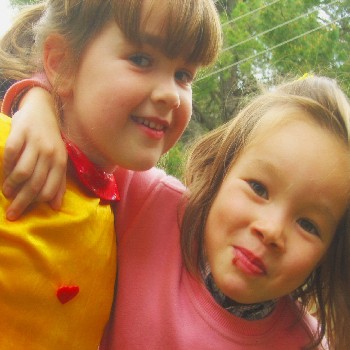 Elementary school children can bring home all sorts of things from school. Sometimes it is something good – an A, a hand made Mother’s Day card, or a diorama depicting Washington crossing the Delaware. Other things that the kids bring home from school, like viruses or new and unsavory vocabulary, can be less enjoyable. And sometimes it isn’t a what but a who. When it is other people’s children that are being introduced into your home — be it for a birthday party, a ride sharing arrangement, a “play date”, or whatever manner — things start to get a little more complicated.
Elementary school children can bring home all sorts of things from school. Sometimes it is something good – an A, a hand made Mother’s Day card, or a diorama depicting Washington crossing the Delaware. Other things that the kids bring home from school, like viruses or new and unsavory vocabulary, can be less enjoyable. And sometimes it isn’t a what but a who. When it is other people’s children that are being introduced into your home — be it for a birthday party, a ride sharing arrangement, a “play date”, or whatever manner — things start to get a little more complicated.
We’ve said here often that parenting is a balancing act. Supervising your child’s interaction with his or her peers is just one more example. I’ve noticed that parents tend to easily fall into one of two extremes. The natural inclination of well meaning parents seems to be to either hover protectively over their child, fighting the battles that should be his, or to push so hard for their own child to be gracious and accepting that they allow the visitor to trample all over her.
The former behavior tends to lead toward isolationism and over-parenting. The latter lends itself to self-congratulation in the form of denigrating the parenting of the other child’s parents. Either case can lead down a perilous road. As we’ve seen again and again in our parenting journey, the middle road is the best solution for the long-term well being of our children.
We need to supervise play time for our younger elementary children without dominating it. The kids need to learn how to get along with others without becoming a doormat. It isn’t easy when their peers are other young elementary students who may be farther behind on the social learning curve and just downright unreasonable. And here you are as a parent, unable to apply proper discipline to any of the kids — except your own.
Proper playtime supervision, the kind that leads to useful lessons in social life skills, starts before the playtime actually begins and extends long after. Take the time to talk to your child and reinforce playtime rules like sharing, courtesy, sharing, respect, and sharing, sharing, sharing. In case you missed it, sharing is key. The majority of playtime tantrums, arguments, pushing, and crying result from an inability to share among the kids. Talking through when to give and when to stand firm before playtime will make the actual event go much more smoothly for everyone involved.
After playtime, take time to recap. What worked? What didn’t? What could we learn about our friends, ourselves, and the rules of social order from the encounter? This doesn’t have to be — in fact, probably shouldn’t be — very formal. But it should happen and it should lead to better interaction and a more confident, social child in the future.










